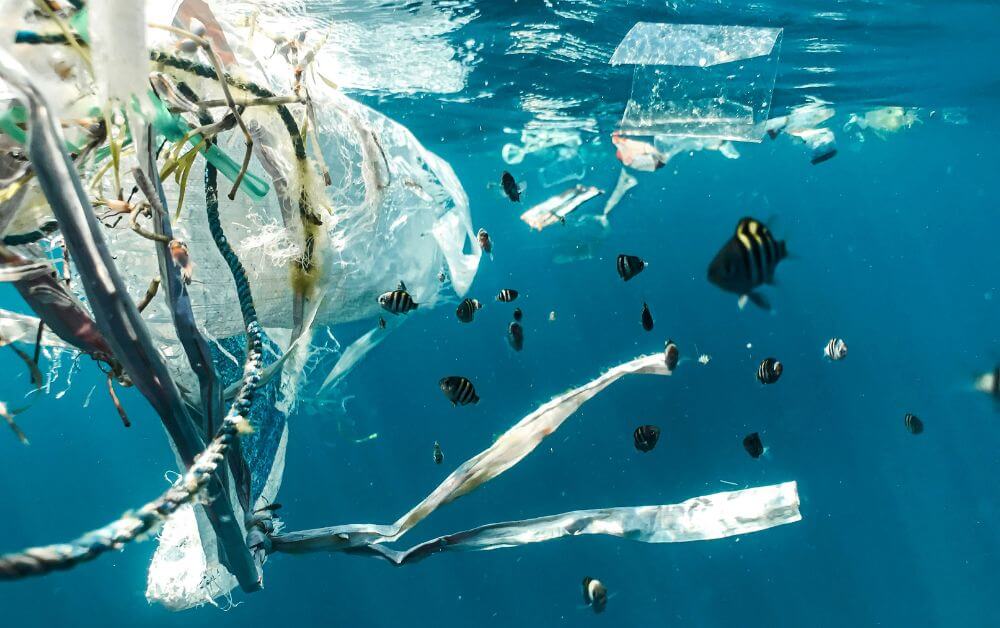In our lifetimes we must find a way to end the use of plastic as we use it now so that we stop adding more toxins and pollution to our planet.
From innovative cleanup projects to eco-friendly solutions, there are lots of ways that we can make a difference.
TomorrowToday is a proud partner of 1%FTP, aiding our dedication to preserving our planet. Read more about our commitment here.
TRANSCRIPT
What a wonderful day for humanity. Today we can announce that we have finally removed the last piece of plastic from planet Earth.
Wow, there’s a headline from the future. I wish I could be optimistic about which year I think this is likely to happen. I hope it will happen sometime in this century. But we need to do this. We’ve basically been lied to, haven’t we? We’re not really able to recycle plastic much at all, and each time you recycle it, it’s expensive and uses more energy than just making new plastic.
And so most plastic of any type actually just becomes a toxin for the planet. And we are realising that, slowly but surely, we need to remove plastic from the environment, starting, obviously, at the moment with projects like the Ocean Cleanup project, that is trying to remove plastic from oceans and rivers. We then need to stop using plastic as much as we do and that’s a lot more than just changing our single-use plastics with cups and straws and so on, but changing the use of it in packaging and in all the ways in which plastic is used in the world, and eventually then replacing it with something that is genuinely biodegradable.
What we then are going to need to do is remove all of the plastic that is sitting in our world, and at the moment, we can find microplastics in fish and in our own bodies, and in all the water that we drink. So it’s going to take a long time to filter all of that out. But at least with the bigger pieces of plastic waste that we’ve now got stored all over the world, there are options like plastic-eating microbes and bacteria, that we are discovering that these are natural products that can actually use plastic as their food and are able to then excrete something that is a lot less toxic for the planet.
There are multiple ways in which we need to deal with plastic and the pollution that plastic brings to our planet. But there is no doubt that what we really need to be doing, as humanity, is making sure that the 20th century might have been the first century we used plastic, the 21st century needs to be the century we stop using it sooner rather than later.
Thank you, as always, for joining me in the ThrowForward Thursday studio. We always try and be hopeful, but sometimes we have to go very far in the future to discover a solution to a big problem that we’ve got right now.
If you’d like our team at TomorrowToday, to help you and your team think about the future and to come up with scenarios that stretch your strategic imagination, make sure you connect with us at tomorrowtodayglobal.com.
And also, this month, we are launching a wonderful new product that is a book filled with some of these ThrowForward Thursday scenarios from our archives that we have added discussion guides to and on our website, you will be able to find a way to download a small sample copy and to get hold of the full book for you and your team to investigate the future, stretch your strategic imagination and work out how you can use tomorrow’s world to inspire today’s actions.
I’ll see you next week in the future again. Bye.
At TomorrowToday Global, we help clients around the world analyse major global trends, developing strategies and frameworks to help businesses anticipate and adapt to market disruption in an ever-changing world.
Subscribe to our team’s weekly newsletter filled with insights and practical resources to help you succeed in the future of work.
For all enquiries, please use this email: [email protected]
For the past two decades, Graeme has worked with some of the world’s most recognized brands, travelling to over 80 countries in total, and speaking to around 100,000 people every year. He is the author of 5 best-selling books, and on faculty at 5 top global business schools.


